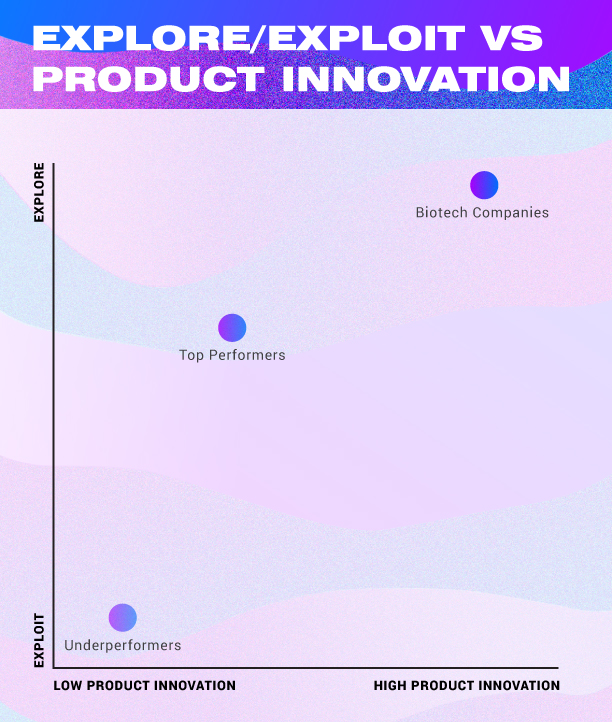IMD business school for management and leadership courses



The Big Deal Of mRNA Technology After The Covid Vaccine In 2023
A previous version was initially published by Forbes.
People might know mRNA technology because it’s used to make the COVID-19 vaccine possible. But this is also a new way to discover drugs.
All life forms on earth share the following structure: They have DNA that encodes genetic instructions. It sits inside the nucleus of a cell and makes mRNA. Once produced, strands of mRNA move out from the nucleus but stay inside the cell as the messengers. Based on their message, the cell then makes specific proteins, which make up all parts of the body, from the muscles to the brain and other organs. All living organisms are protein-based.
The big deal is this: For the first time in human history, scientists can engineer a specific mRNA and deliver it safely inside a cell to instruct it to make a specific protein. In the case of a COVID-19 vaccine, the proteins made by our muscle cells where you have your injection are ones that have the spiky shape of a real COVID-19 virus. This serves as the “wanted” poster for your immune system. Your body is therefore trained to recognize the suspect ahead of time, and you make antibodies before being infected. This is why getting a vaccine can save your life.
Of course, mRNA technology isn’t limited to fighting COVID. For example, you can also train your body to recognize cancer cells and eliminate them before they spread. And because this approach doesn’t alter a cell’s DNA, the protein production is controlled. Each segment on the mRNA translates into only one protein. This is why it’s safer than gene therapy, which directly manipulates human DNA and may result in a cell continuing to multiply.
Let’s pause for a moment and think of this. The COVID pandemic is the equivalent of the Manhattan Project for medicine. During the Second World War, the Manhattan Project gave us the ability to understand nuclear power and how it works. The challenge of overcoming COVID throughout 2020 and on has given us a host of new weapons to fight off human diseases.
Of course, not all companies are ready for the new science. When facing a scientific breakthrough, CEOs and executives may get ultra-conservative. Instead of making bold bets, they worry about shareholder pressure. Time and time again, big Pharma gets busy shoring up the near-term bottom lines by making cuts. They slash costs by laying off workers. They close factories and shatter R&D labs. Or they may chase growth not through science but through mergers and acquisitions. These companies won’t advance an experimental drug unless its market potential becomes abundantly clear and the chance of success is extremely high.
Meanwhile, there are also forward-looking companies that hire scientists and set them free to find potential drugs no matter where it takes them. Their inquisitiveness has led to diversified product lines and business models.
The difference is clearly apparent in the following graph.

You can check out which are among the most future-ready pharma companies by clicking here.
We compiled this chart using big data analytics with an AI algorithm. With over 70 news sources and 10 years of data, we carried out a sort of sentiment analysis on companies’ behaviors.
Unsurprisingly, biotech companies are the most aggressive in exploring new treatment approaches and entering new treatment areas. From the outset, these companies look and act very differently from traditional Pharma companies. Biotech companies are smaller and nimbler. They seem more willing to take risks on new technologies.
Traditional Pharma companies, on the other hand, behave like most industry incumbents and are slow to embrace new technologies. Many have a bias toward their own in-house research, suffering from “not-invented-here” syndrome. Ken Frazier, the former CEO of Merck, once said, “Companies become hierarchical. They become bureaucratic. They become slow. They become risk-averse.” In other words, they focus on exploiting their current capabilities instead of exploring the new.
This is how some Pharma companies are relegated to the back end of drug discovery. They help carry ideas of biotech through the finish line through license deals or acquisitions. They serve as experts who navigate the labyrinthine processes around clinical trials, and they submit documents for FDA approval which is a massive bureaucratic undertaking that a biotech startup doesn’t yet have the heft or know-how to do.
But what distinguishes future-ready Pharma companies is that they remain steadfast in their commitment not only to make new drugs but also to make them in a new way. That’s why Pfizer’s partnership with BioNTech is not only about a covid vaccine. It is exploring, like Roche and AstraZeneca, using mRNA technology to turn a body into a pop-up protein factory that sets off a desired immune response. It’s an approach that targets a range of illnesses, from influenza to cancer to heart failure to autoimmune disorders to certain rare diseases. The COVID vaccine is merely a validation of this new form of treatment.
Imagine this. A doctor takes biopsies of a patient’s tumor. Thereby a lab can identify a substance called neoepitopes, which can set off the body’s immune responses to a tumor. However, without medical intervention, such responses are often too weak to be effective. The Pharma company would then pack a genetic code for the neoepitopes into an mRNA vaccine. That could then supercharge the production of an anti-cancer immune response. The entire turnaround time from the initial biopsies to vaccine injection would be just under a few weeks.
Such is the tantalizing research path for personalized cancer treatment. Is it going to work? No one knows. Executives from big companies often see barriers. And yet future-ready companies see possibilities. They don’t wait for perfect certainties. They start working on the technology today and see where it leads.











